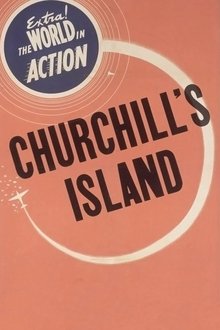This film is an account of the Talyllyn Railway, a historic narrow-gauge slate carrier in Tywyn, Wales, and its operation by a preservation society who saved it from being sold for scrap. Although the release date is 1965, it was actually filmed in the early 1950s. Preserved by the Academy Film Archive in 2012.
Related Movies

Steel Town (1944)
Documentary examining the steel industry in Youngstown, Ohio during World War II. Focuses on steel production, including the smelting process, slagging and the blast furnace. Workers reflect upon their lives and the importance of their jobs. Emphasizes the importance of teamwork in the mills and on the plant's labor relations committee to help win the war. Preserved by the Academy Film Archive in 2012.

Hymn of the Nations (1944)
Commissioned by the U.S. Office of War Information, this short film features conductor Arturo Toscanini leading the NBC Symphony Orchestra, tenor Jan Peerce, and the Westminster Choir in Verdi’s Inno delle nazioni. Originally composed in the 1860s as a musical tribute to Europe, Toscanini expanded the score to include The Star-Spangled Banner and The Internationale in honor of the Allied struggle and Italian partisans. Filmed in NBC’s Studio 8H, the documentary interweaves performance with scenes of Toscanini at home, emphasizing his anti-fascist stance and celebrating the liberation of Italy. Preserved by the Academy Film Archive in 2010.
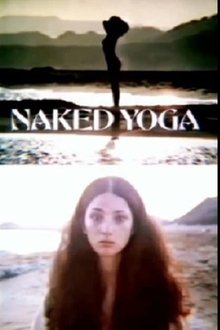
Naked Yoga (1974)
Three young ladies perform yoga without clothes in the open air of Cyprus. Another does the same in a studio. These visuals are interspersed with images of Eastern art, processed for "psychedelic" effect. The narrator relates the practice of yoga to Buddhist philosophy. Preserved by the Academy Film Archive in partnership with British Film Institute in 2012.
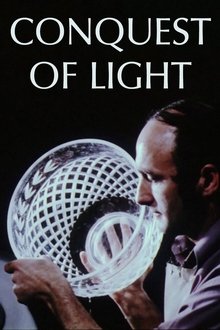
Conquest of Light (1975)
Examines the mesmerising construction of clear crystal glass pieces created by the craftsmen of Waterford. The process from the intense heat of the furnace to glass blowing, shaping, cutting, honing, filling and finishing is all depicted in this celebration of the art of creation of Waterford Glass. Academy Award Nominee: Best Live Action Short - 1976.
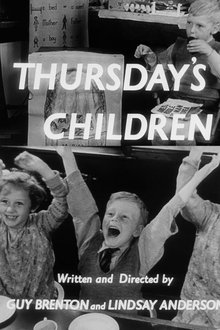
Thursday's Children (1954)
Won the Academy Award for the Best Documentary Short of 1954. The subject deals with the children at The Royal School for the Deaf in Margate, Kent. The hearing-handicapped children are shown painstakingly learning what words are through exercises and games, practicing lip-reading and finally speech. Richard Burton's calm and sometimes-poetic narration adds to the heartwarming cheerfulness and courage of the children. Preserved by the Academy Film Archive in partnership with British Film Institute in 2005.
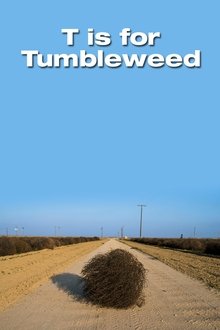
T Is for Tumbleweed (1958)
T Is for Tumbleweed is a 1958 English-language short film directed by Louis Clyde Stoumen, starring Anne Lockhart. It features some tumbleweed that moves through a small town in the desert and interacts with people and animals. Preserved by the Academy Film Archive in 2013.
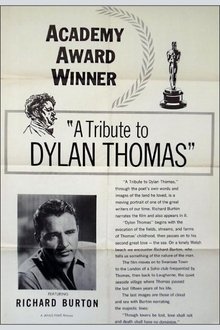
A Tribute to Dylan Thomas (1961)
An atmospheric tribute to the genius of Welsh poet and dramatist Dylan Thomas, using many of the windswept locations where Thomas himself grew up and found his inspiration. The film is hosted/presented by Richard Burton, Thomas's friend, who narrates the story and appears from time to time amidst the Welsh landscape. Burton had already appeared in Douglas Cleverdon's acclaimed BBC radio dramatization of Thomas's 'play for voices' Under Milk Wood in the 1950s and, in the early Seventies, would appear in director Andrew Sinclair's film version as First Voice. Preserved by the Academy Film Archive in partnership with The Film Foundation and National Screen and Sound Archive of Wales in 2000.
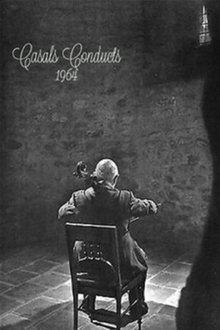
Casals Conducts: 1964 (1964)
While at his workshop in Puerto Rico, Pablo Casals prepares to conduct a Bach suite for a concert performance. Oscar Winner for the category "Best Short Subject, Live Action Subjects". Preserved by the Academy Film Archive in 2013.
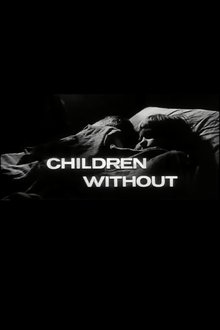
Children Without (1965)
Children Without is a 1964 American short documentary film directed by Charles Guggenheim, about a young girl and her brother growing up in the housing projects of Detroit. It was nominated for an Academy Award for Best Documentary Short. Preserved by the Academy Film Archive in 2016.
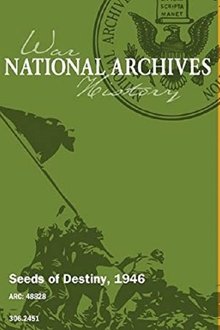
Seeds of Destiny (1946)
Oscar winning postwar propaganda film in support of the United Nations Relief and Rehabilitation Administration. Strident but poignant, focusing on children. The film surveys the Nazi/Japanese atrocities, post-war devastation and the early relief efforts. This film was responsible for raising over $200,000,000, making it a top moneymaking film. Preserved by the Academy Film Archive in 2005.
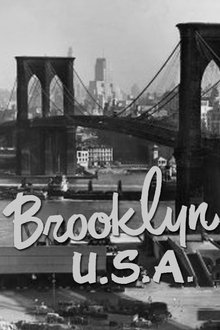
Brooklyn, U.S.A. (1947)
Brooklyn, U.S.A. is a 1947 English language short film directed by Arthur Cohen, starring Ted de Corsia. It was nominated for an Oscar in the category of Best Short Subject, One-Reel. Preserved by the Academy Film Archive.

1848 (1950)
The film explains the French Revolution of 1848. Bernard Blier's narration is supported by pictures once drawn by contemporary artists including Honoré Daumier. Preserved by the Academy Film Archive in 2010.
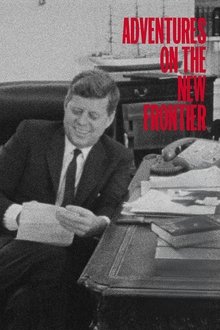
Adventures on the New Frontier (1961)
A look at the daily business of U.S. President John F. Kennedy, with a focus on some of the political issues he faces six weeks into his term. Preserved by the Academy Film Archive in 2007.
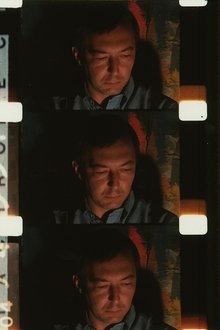
Galaxie (1966)
In March and April of 1966, Markopoulos created this filmic portrait of writers and artists from his New York circle, including Parker Tyler, W. H. Auden, Jasper Johns, Susan Sontag, Storm De Hirsch, Jonas Mekas, Allen Ginsberg, and George and Mike Kuchar, most observed in their homes or studios. Filmed in vibrant color, Galaxie pulses with life. It is a masterpiece of in-camera composition and editing, and stands as a vibrant response to Andy Warhol's contemporary Screen Tests. Preserved by the Academy Film Archive in 2001.

Primary (1960)
Primary is a documentary film about the primary elections between John F. Kennedy and Hubert Humphrey in 1960. Primary is the first documentary to use light equipment in order to follow their subjects in a more intimate filmmaking style. This unconventional way of filming created a new look for documentary films where the camera’s lens was right in the middle of what ever drama was occurring. Preserved by the Academy Film Archive in partnership with The Film Foundation in 1998.
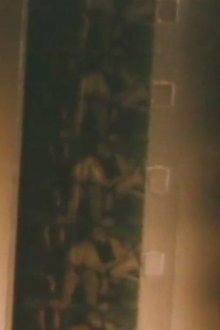
VICARIOUS THRILLS (1979)
First the Beaulieu documentation of the shoot, then the Arri footage, the porn loop, and the reprise. VT was shown from 1979–1981, with Jim Fulkerson performing on amplified trombone before the screen. Juan Carlos Kase discussed VT in “Alternative Projections.” Part of his essay, read by the author, is included. Preserved by the Academy Film Archive in 2011.
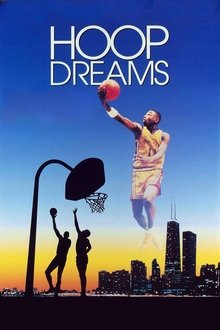
Hoop Dreams (1994)
Every school day, African-American teenagers William Gates and Arthur Agee travel 90 minutes each way from inner-city Chicago to St. Joseph High School in Westchester, Illinois, a predominately white suburban school well-known for the excellence of its basketball program. Gates and Agee dream of NBA stardom, and with the support of their close-knit families, they battle the social and physical obstacles that stand in their way. This acclaimed documentary was shot over the course of five years.
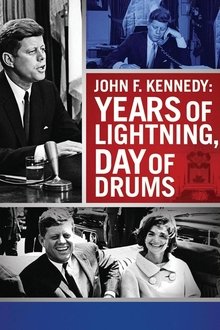
John F. Kennedy: Years of Lightning, Day of Drums (1966)
An overview of John F. Kennedy's political career. Preserved by the Academy Film Archive, in partnership with Warner Bros. Entertainment Inc., in 2014.
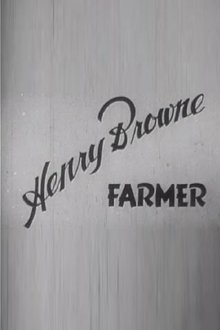
Henry Browne, Farmer (1942)
Henry Browne, an African American farmer, and his family are profiled in this film. The important job of a farmer during times of war is highlighted, specifically his efforts growing peanuts and cotton. This role is made even more poingnant when they visit the eldest son who is a cadet in the 99th Pursuit Squadron.
